Key Results
In (just over) a year of regular StreamLine system use, Vanderbilt University Dining achieved:
- 53% reduction in food waste
- 164K lbs of food waste recorded (90% of which is overproduction)
- $150K saved on food costs
- 5X est. ROI
Program Overview
Vanderbilt University is a private university in Nashville with 13.5K undergraduate and graduate students, anchored around a central campus. In the last few years, they’ve taken big steps to promote sustainability in all forms—in 2024, that meant launching a new center for Sustainability, Energy, and Climate, and their Commons residential dining hall is LEED gold certified (an acknowledgement of a facility’s low environmental impact across design, construction, and operation). When opened, the greater Commons center made history as the largest group of LEED-certified buildings (seven) in Tennessee!
Our partnership had similar sustainable roots: back in 2023, Vanderbilt Dining switched from a different reusable packaging solution to our ReusePass program. Their early success (to the tune of a 99% container return rate) and eventual expansion to many more residential dining halls laid the perfect foundation for us to discuss operational challenges at an earlier stage of the service cycle: production.
Vanderbilt's Production Pain Points
Vanderbilt’s self-operated dining program, helmed by Maria Portelli, is a tight ship. Chefs and general managers are held to a high standard of reporting, and dining leaders are always looking for ways to boost team efficiency and protect their CPM.
Despite their acute awareness that preventing waste (esp. overproduction) was a clear path towards cutting costs, they had never found a satisfactory system for tracking and optimizing production. Accurate service results were foundational for so many later decisions, but team members still found themselves scribbling prepared, carryover, and food waste guesstimates on printed NetMenu service worksheets during busy shifts. Chefs couldn’t trust the results they received, and had to spend ~ an hour each day double-checking messy calculations and entering data into NetMenu that was likely inaccurate from the start.
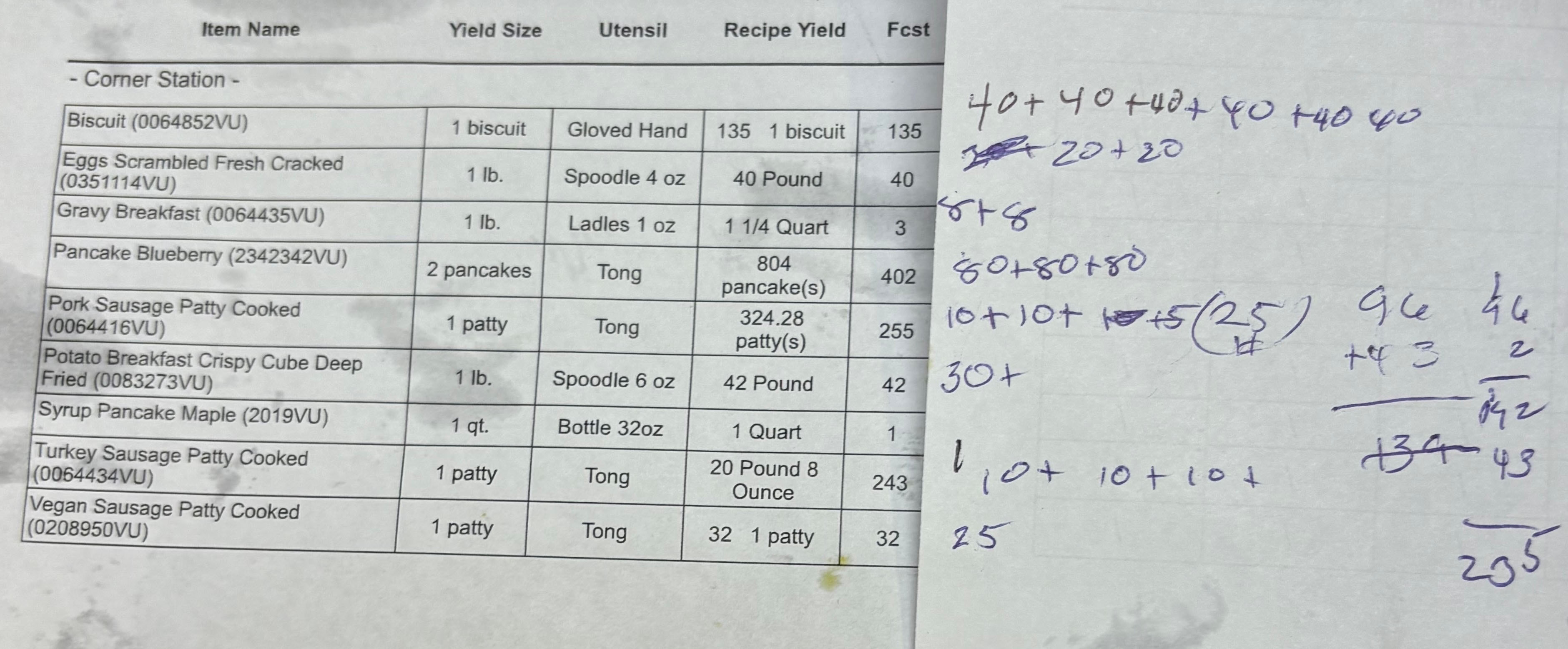
They had previously implemented a waste-only tracking system, but never overcame significant compliance challenges; the system’s multi-step data capture process was too slow to succeed in their fast-paced kitchens.
The result? Wasted hours and low visibility. Chefs and operators still didn’t know how much they were overproducing or how much that overproduction cost.
But we’re not here to just talk problems. Let’s meet their long-awaited solution.
Enter StreamLine: Clarity, Without Friction
In July ‘24, two Vanderbilt dining locations began using StreamLine, our prep-to-post-service data capture system. At that point in time, they were focused on understanding how much food was being tossed back-of-house.
Getting production data with StreamLine is a fast, fluid process. Team members place a tray of prepared, carryover, or wasted food on the countertop smart scale, and with one touchscreen tap, log weight while a connected camera snaps a photo. Our AI instantly matches each entry to the corresponding NetMenu menu item or ingredient, translating raw data into clear, actionable insights.
.jpg)
As a StreamLine design partner, the Vanderbilt team has played a critical role in ensuring every new feature and flow can withstand the demands of the line. After just a few weeks with StreamLine, they had reliable, robust waste data; as the system continued to prove itself, they scaled up their usage, and as of Oct ‘25 have 25 smart scales deployed across 7 kitchens to record what’s prepared, carried over, and tossed.

That complete picture of production helps them see the “why” behind the waste: demand was different than expected, misfires occurred, or maybe a prep plan wasn’t followed.
The Path Towards Optimized Production
How has this data changed the way their culinary teams operate? First, visibility: chefs and leaders have production results they know they can trust, because we’ve automated data capture and eliminated the opportunity for human error.
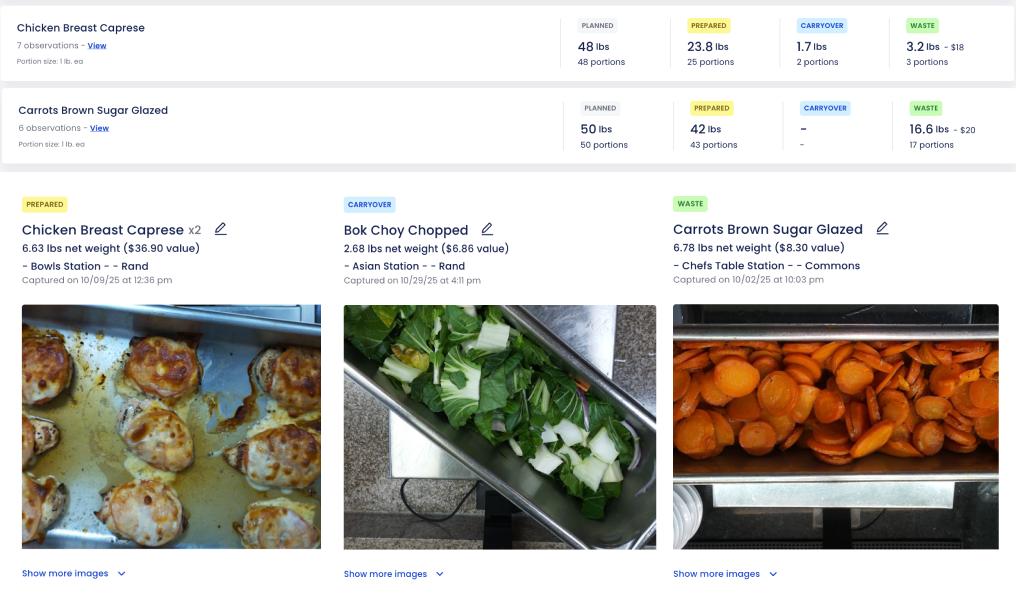
In just over an (academic) year of regular use, they’ve recorded 164K pounds of food waste (to break it down, if that was all chicken fingers, that’s enough to feed 656K diners!), have reduced their total volume of waste by 53% against an annual baseline, and have saved an est. ~$150K in food costs. Of those 164K lbs of waste, ~90% is estimated to be overproduction, presenting a huge opportunity to further optimize prep and planning.
“It has been great to use data from StreamLine to hone in on how we can reduce costs in our operations. My line cooks actually use the system because it doesn’t slow them down, and within weeks I had enough information to start actioning on clear waste patterns. Launching in the summer also gave our team a great testing period to dial in our workflow before back-to-school. We’ve all been able to save so much time—I have used everything from paper waste logs, to now AI-assisted waste tracking, and can’t imagine going back to our way of working before StreamLine.”
— Grayson Holland, (Former) Vanderbilt Dining General Manger
They’ve already made significant efforts to prevent unnecessary prep; their 53% reduction in waste has been accomplished by informed decision-making and team leadership. For example, one Vanderbilt chef saw that “Mongolian Rice Noodles” continued to appear in weekly summaries as a top-wasted item, prompting a focused conversation (and regular check-ins) with the relevant station lead and adjustments to future menus. Those menu changes don't just save money—they also save cooks’ time and sanity, by ensuring labor hours are only spent prepping food that’s actually consumed.
We're grateful to have spent countless hours in Vanderbilt's kitchens: observing conversations like these, understanding their workflows, and building tools designed to save funds, food, and time. Partnerships like this one help us create solutions that actually work on the line.
Get Waste Prevention Guidance
Maybe you’ve been burned by a legacy tracking system that didn’t deliver, or you’re frustrated with friction from paper-based workflows. We hear you, and want to help you overcome those challenges—just like we're doing with the Vanderbilt Dining team.
A new path to optimized production could be just what you need to combat sky-high operational costs, inaccurate forecasts, and burnt-out staff.
To get waste-prevention advice tailored to your own culinary program’s unique challenges and needs, you can book a free, no-strings-attached consultation here with Leanne Tallis, our resident expert.
Interested in how Topanga could improve your dining program? Let’s chat.
We’ll walk you through how Topanga can support your goals and tailor a solution to fit your operation.


.avif)
.avif)
.avif)










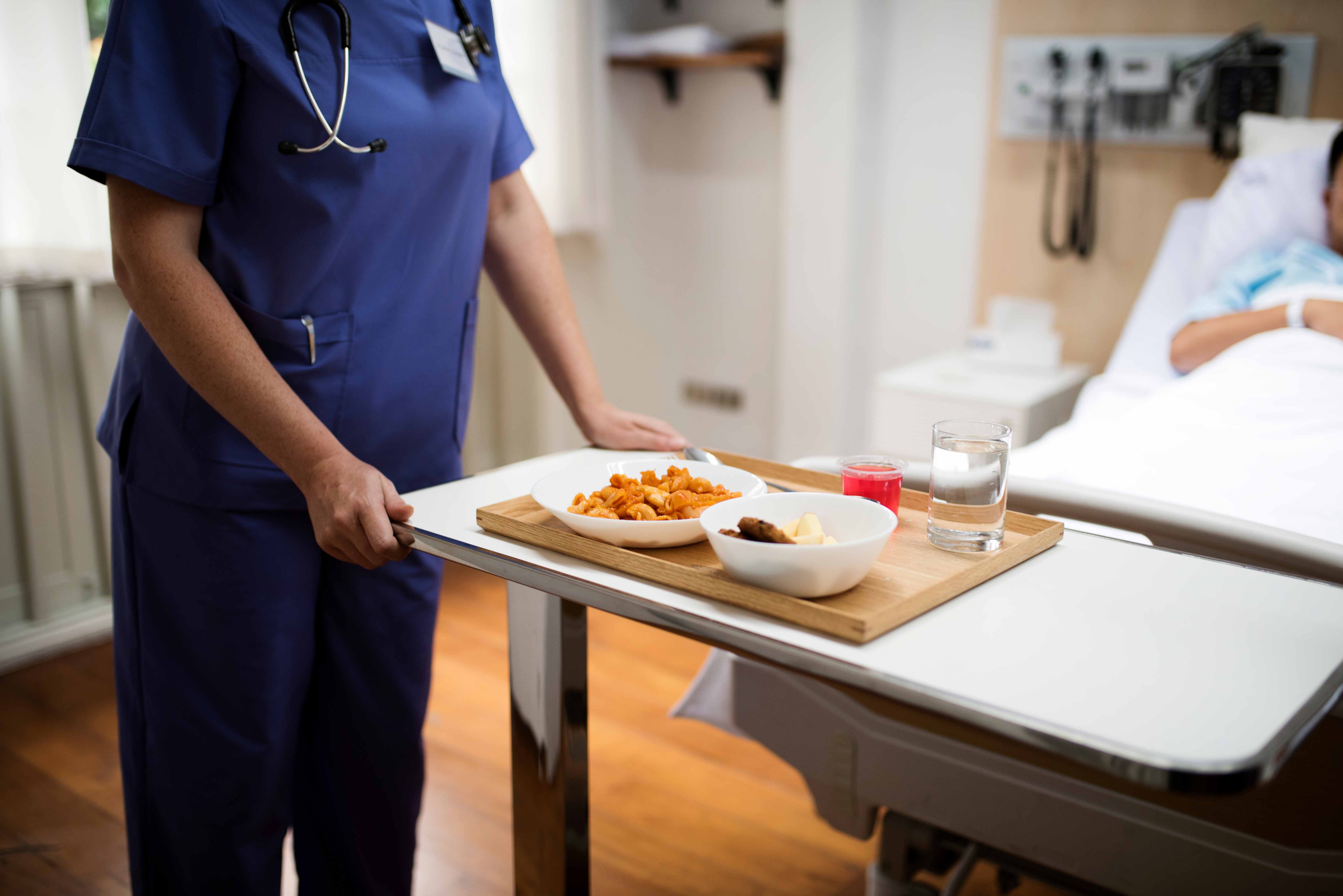
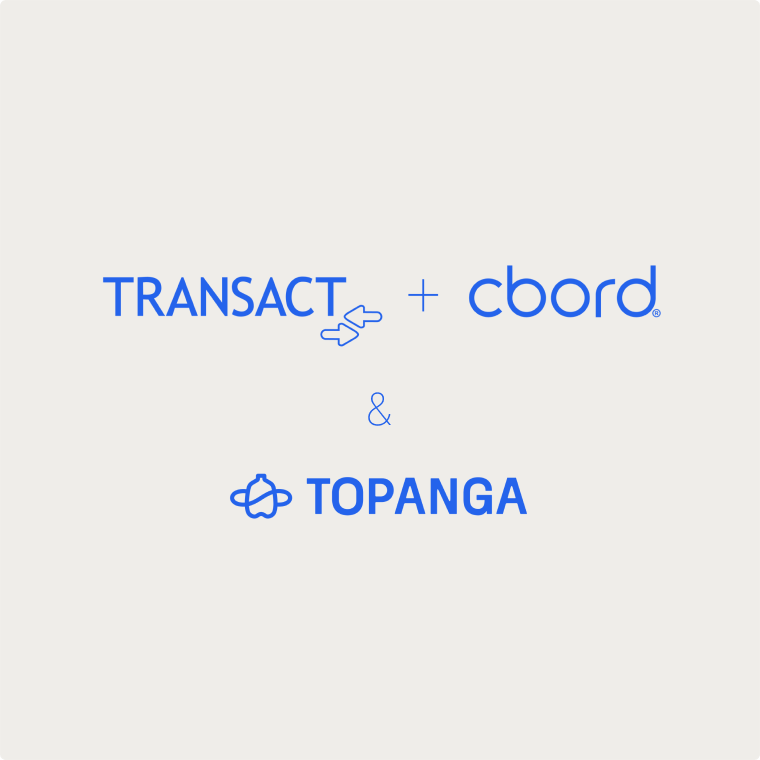

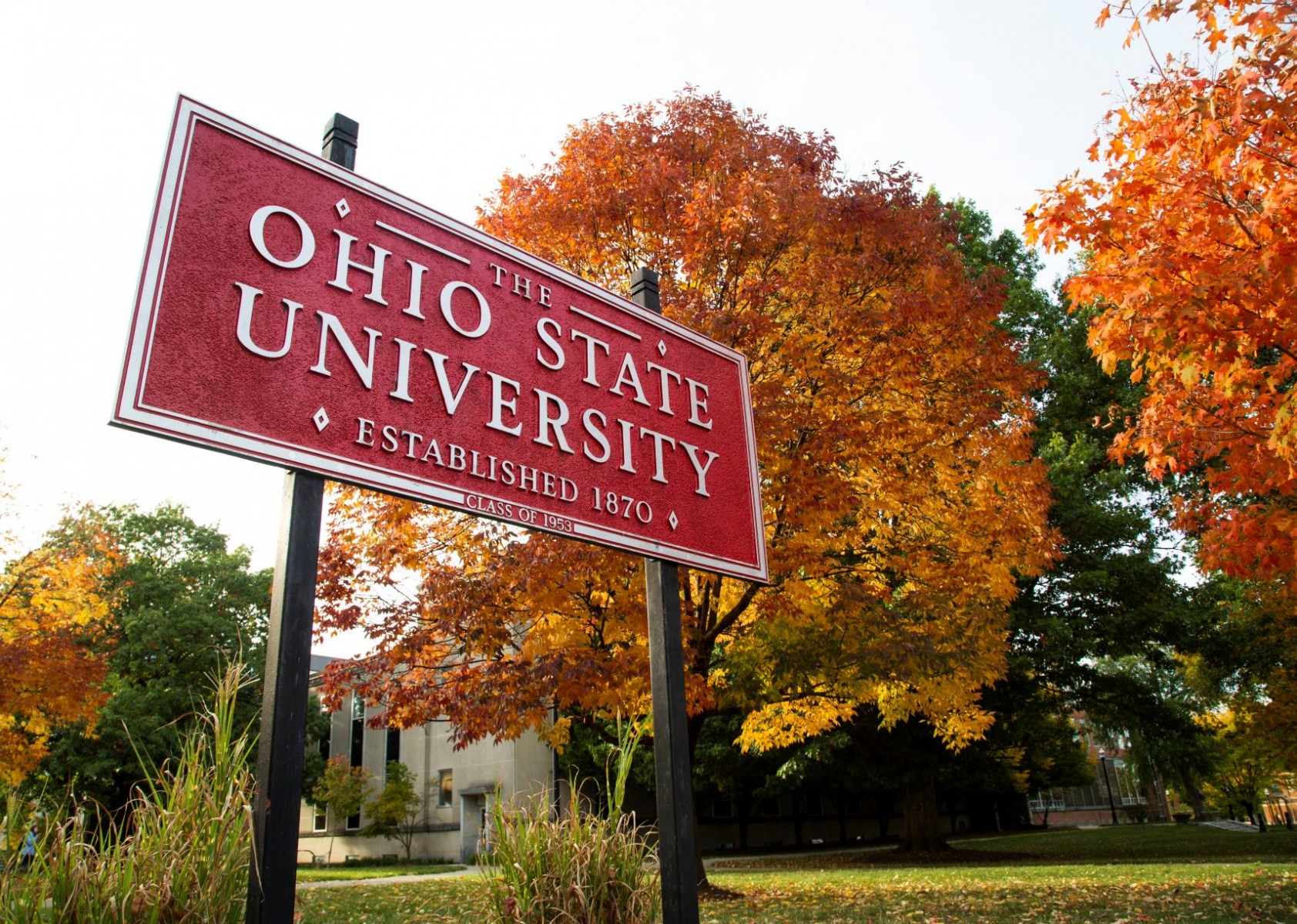






.png)
.png)